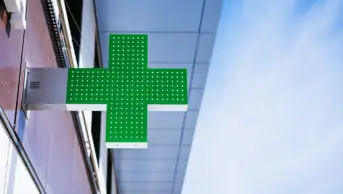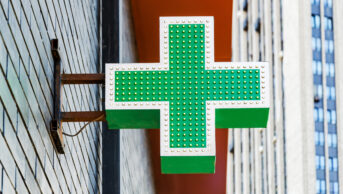
Shutterstock.com
Some 42% of all patient requests for urgent repeat prescriptions made via the NHS 111 service in January 2018 were supplied by community pharmacists who had voluntarily signed up to the NHS Urgent Medicine Supply Advanced Service (NUMSAS) scheme.
Just 12 months earlier, this figure was only 1%, the results of an internal analysis by NHS England revealed.
The NUMSAS, which provides a community pharmacy emergency supply service via NHS 111, was phased in from December 2016 with money from the Pharmacy Integration Fund. Since it was introduced, the service has taken pressure off GPs, according to the evaluation.
In January 2017, 70.2% of urgent requests for a repeat prescription were picked up by GP out-of-hours services; 12 months later that figure had fallen to 45.2%.
The NHS England evaluation revealed that 4,000 pharmacies have registered for the scheme since it was launched. By January 2018, 106,228 items had been supplied through the NUMSAS.
The main reason given for needing an urgent repeat prescription (31.5%) was that patients had forgotten to place a new order; 17.7% had placed an order but the repeat prescription was not ready; some 15% of patients said they had been unable to pick up their prescription, while another 11.9% said they needed the service because they were not at home.
The evaluation also revealed that 66.3% of patients admitted they would have gone to a hospital emergency department or contacted their out-of-hours GP for their repeat prescription if the pharmacy-led service had not existed.
The results of the evaluation, seen by The Pharmaceutical Journal, come as the government has announced that it is extending the NUMSAS — which remains as a pilot scheme — for a further six months. The scheme was due to end in March 2018 but was extended until September 2018, before being given a further extension until March 2019.


